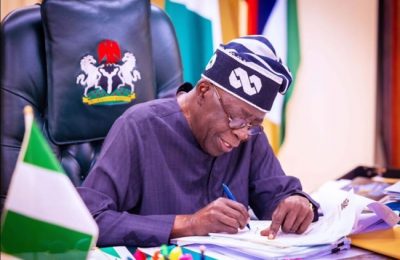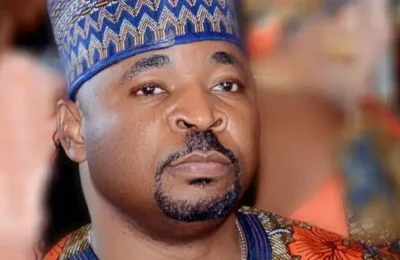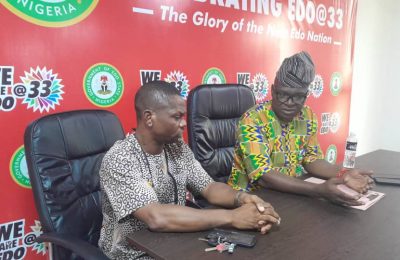As the former vice president of Nigeria and presidential candidate of the Peoples Democratic Party (PDP), Atiku Abubakar, heads to the Supreme Court with what he has termed fresh evidence bordering on the legality or forgery of President Bola Tinubu”s Chicago University certificate, lawyers have stated that though the Supreme Court could admit fresh evidence at its discretion, it may not be applicable in this case as the Supreme Court do not try cases.
They argued that in an election petition, there is a limitation of time for every action, and stricter rules apply in election petition, adding that fresh evidence has never been allowed as the
appellate court is subject to some legal principles which may not be applicable in this case

Speaking on the matter, Chief Yomi Alliyu (SAN), said to appeal is a fundamental right of every Nigerian and appeal is a rehearing of the case, adding that “no party can depart from the issues he fought before the lower court. That means that one cannot put forward a case different from what he contested at the lower court.
“Now, in special circumstances the rules of the Supreme Court allow parties to bring up fresh evidence that was not available or could not be reasonably procured with all diligence at the hearing at the Lower Court. The question is whether in exercising due diligence, the evidence that Alhaji Atiku is seeking to put before the Supreme Court was not available or could not be procured with due diligence in the course of hearing of the petition at the Lower Court by him.
“The answer to this could be found in the tribute paid to Chief Gani Fawehinmi by Alhaji Atiku at his world conference. Thus, as far back as 1999, when President Bola Ahmed Tinubu was Governor in Lagos he was in deep controversy with the schools he attended and the certificates given to him. Again, on Tinubu winning the primary election of APC, Atiku ought to have filed action at the Federal High Court seeking disqualification of Tinubu on the ground that he forged his certificates.
“Finally, the petition went on for six months at Presidential Election Petition Court. Throughout the period Alhaji Atiku did not approach Chicago Court for the release of Tinubu’s certificates but now seeking to do it where he has lesser time, to wit six months! This shows he could have procured the evidence with due diligence in the three instances to wit before the petition at the Federal High Court; secondly, before filing his petition; and finally, in the course of hearing the petition. After all Alhaji Atiku secured an order of PEPC to inspect election materials with INEC!

“The hurdle becomes more difficult because election petition is *sui generis* with limitation of time for every action. Stricter rules apply in election petition. Fresh evidence has never been allowed and will not be allowed where you want to prove that a man forged the certificate for the degree earned with honors and prizes without calling for further evidence as to whether in USA one cannot ask the vendor authorised by one’s school to design his certificate the way he wants it since transcript is what matters in USA as opposed to certificates in Nigeria,” he said.
On his part, a former chairman of the Nigeria Bar Association (NBA), Ikeja, Dave Ajetomobi, said “The first issue is whether there’s any evidence useful for the purpose of Atiku’s case. I believe that he hasn’t made any impactful gain in the USA court. What is being relied on now is the fact that the CSU said the replacement certificate was not issued by them because they don’t issue such, re-issue is handled by their vendors. In other words, the certificate used by PBAT wa issued by CSU vendor which is quite legal.
“Using that at supreme court is chasing shadows, certificate issued by vendors can not be exactly like the original. It is clear that the man graduated, given certificate but it got lost and he got a replacement from authorized vendors. Secondly, allowing fresh evidence at the appellate court is subject to some legal principles which may not be applicable in this case because from the date of filing the appeal at the Supreme Court, the court has 60 days to give judgment, once judgment exceeds 60 days the case automatically die a natural death.
Election petitions (unlike regular civil cases which gives broader space for litigators to ventilate their case), have their own rules, which apparently doesn’t accommodate fresh evidence on appeal because of time factor. Assuming that the rules can allow it, it will not be automatic, they also need to show that the evidence they are seeking to bring in was not available at the lower court and there was no means of getting to know of it while in the lower court. I believe even if they are allowed, it will not have any impact or affect the merit of the case, except on the social media,” he added.
Toyese Owoade from the Afe Babalola Chambers in his opinion said “The appellate Courts are usually wary of receiving fresh evidence not available at the stage of trial. However, the appellate Court is not inhibited from, but only treads with caution in accepting fresh evidence on appeal. The power to receive further or fresh evidence on appeal is rarely exercised but is not taken away, extinguished or inhibited.
“An appellate Court can receive further evidence on questions of fact but it will only do so on special grounds and with great circumspection. In an application for leave to adduce fresh evidence on appeal, the Court must satisfy itself that the receipt of the fresh evidence would advance the course of justice by assisting it to resolve the issue before it fairly, justly and equitably. Thus, the following conditions must co-exist before the Court can receive fresh evidence: where the evidence sought to be added is such as could not have been obtained within a reasonable care and diligence for use at trial;
” where the fresh evidence is such that if admitted it would have an important, but not necessarily; crucial, effect on the whole case; and the evidence sought to be tendered on appeal is apparently credible and capable of being; believed and the evidence must also be relevant to the suit in ‘furtherance of justice’
In the instant case, there are arguments as to whether Atiku’s lawyers pleaded what they seek to tender at the Supreme Court, if it is answered in the negative then their pursuit is a wild goose chase. Secondly, given the fact that elections petitions are sui generis, (special kind) I doubt if they will be able to bring fresh evidence after the 180-day window prescribed by the Electoral Act to prove their case,” he said.
Also speaking with Nigerian Tribune, Foluso Olaposaid ‘it is important to understand the fact that the Supreme Court and even the Court of Appeal often times are created to review the decisions of lower courts. This means that unlike courts of first instances (e.g. High and Magistrate Courts) both the Court of Appeal and the Supreme Court do not try cases.
“As a result, even though the Supreme Court could admit fresh evidence such admission is discretionary and is rarely done especially where such evidence has been available even at the trial stage. The Supreme Court in the case of FOLARIN ROTIMI ABIOLA WILLIAMS & ANOR V. ADOLD/STAMM INTERNATIONAL NIGERIA LIMITED & ANOR (SC.404/2013)[2017] NGSC 12 (13 JANUARY 2017) held that *the power to* *admit new, fresh or additional evidence must always be* *exercised sparingly and with caution.
“The Court must consider whether there are special circumstances to warrant the grant of the application and whether it would be in furtherance of the justice of the case . See also Uzodinma vs Izunaso (No.2) (2011) 17 NWLR (Pt. 1275) 30 @ 55 B-C. Also the Supreme Court in RT. HON. ROTIMI CHIBUIKE AMAECHI V. INDEPENDENT NATIONAL ELECTORAL COMMISSION AND 2 OTHERS (SC 252/2007) [2008] 10 (18 JANUARY 2008) held that “the power of the Court of Appeal to receive further evidence on appeal is governed by Order 1, rule 19(2) of the Court of Appeal Rules, 2002. Any fresh evidence to be received on appeal could only be such evidence as would assist the court in resolving the issues that had been duly pleaded,” he explained.







